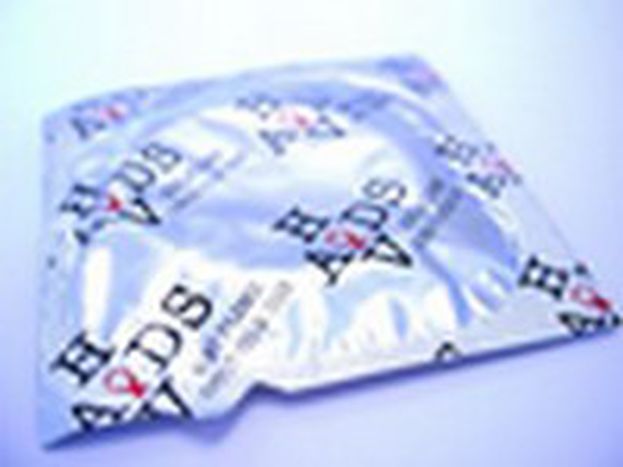
Russia: HIV positive
Published on
Translation by:
 eleanor forshaw
eleanor forshaw
The battle against Aids will be one of the big talking points of the G8 in 2006. Russia, highly affected by the Aids virus, will try and hold financial backers to their promises
Almost a year has passed since the Gleneagles summit of July 2005, where eight world leaders decided to put the battle against poverty at the centre of their discussions. Pushed by civil society, public opinion and Bob Geldof’s Live8 concert, the major powers announced a series of well intended proposals. Among the declarations officially recorded was the commitment to universal access to treatments against Aids by 2010.
However, Oxfam International estimates that given the current amount spent on this issue, such an objective will never be reached in time: of the six million people urgently requiring care, only one million had access to the necessary treatment in 2005. The cost of the drugs is clearly too high.
Eastern Europe is severely hit
Since the virus was discovered in the gay community of Los Angeles 25 years ago, 25 million people have died of the illness and 40 million other people have been contaminated. In May 2006, Peter Piot, the executive director of UNAIDS, the umbrella organisation of the United Nations in charge of fighting against the epidemic, declared that “the virus had spread so rapidly that today, in the whole world, it is the first cause of death of men and women aged between 15 and 59.”
If Sub-Saharan Africa remains the most afflicted region of the world, Eastern Europe is not spared. In that part of the continent, the virus spreads like wildfire. According to EuroHIV – the European programme monitoring the virus on the continent – the advance is closely linked to the use of drugs by intravenous injection. The practice has greatly increased since the 1990s, after the collapse of the Soviet Union, when Afghanistan became one of the greatest opium producers in the world. The transmission by sexual intercourse is also increasing. The most vulnerable are the young, who lack the information and services with which they could protect themselves.
According to the figures released by UNAIDS, which aggregates the research of the United Nations Development Programme (UNDP), UNICEF, the United Nations Population Fund (UNFPA), the WHO, UNESCO and the World Bank, 1.6 million people were affected by the disease in Eastern Europe and in Central Asia in 2005. More than a million people have been contaminated since the discovery of the first cases of Aids in the region in southern Ukraine in 1995. 75% of the infections recorded between 2000 and 2004 impact on the under-30s. That percentage drops to 33% in Western Europe. Ukraine and Russia are the two countries that are the most affected. Last year, 62,000 adults and children passed away because of the virus, usually due to an insufficient access to treatment.
A tax on air travel
On 3rd June 2005, the 43 countries present at the UN for the international conference on Aids adopted a new mechanism to help buy drugs at a low cost for the poorest people. Inspired by a campaign that originated in Brazil, Chile, Norway and France, Unitaid/IDPF (International Drug Purchase Facility) depends in part on an international solidarity tax on air travel tickets. At the moment, only 14 of the 43 signatory countries have adopted the project (Brazil, Chile, Cyprus, Congo, Gabon, the Ivory Coast, France, Jordan, Luxemburg, Madagascar, Mauritius, Nicaragua, Norway and the United Kingdom). Many key countries are not yet involved, such as the United States, Australia and most European partners, who prefer to help Unitaid by budgetary aid lasting several years.
In France, despite disputes over the air travel lobby, the tax on flight tickets came into effect on July 1st. In practice, travellers will pay 1 euro (69p) in economy class for domestic or European flights and 4 euro (under £3) for international flights (ten times more for business or first class). In total, the instigators of the initiative hope to collect a billion dollars per year in total from the countries that have adopted the tax.
The end of small measures
The NGOs nonetheless denounce a lack of precise commitments by the partner countries of the measure. The UN has estimated that between 20 and 23 billion dollars per year, between now and 2010, would be necessary to initiate an efficient battle against Aids. However, the fundamental principles of the project contain no formal commitment to achieve that aim.
According to Stefaan Declercq, Secretary General of Oxfam-Solidarity in Belgium, “the tax on air travel tickets, which will be paid by the consumers, must not be a substitute to the contributions of the states, which fund the Global Fund Against Aids”. The founders of Unitaid have promised that the project will be complementary and not a substitute to the instruments that are already in place, such as UNAIDS or the Global Fund. Stefaan Declercq highlights nonetheless that “in 2002, at the Monterrey Conference, the rich countries had committed themselves to not count the cancelled third-world debts in the amounts they give to finance the aid to development. But that is precisely what they are doing”. The NGOs, quite rightly, wait only for one thing: that the members of the G8 get it right at St Petersburg.
Translated from Russie HIV positive


